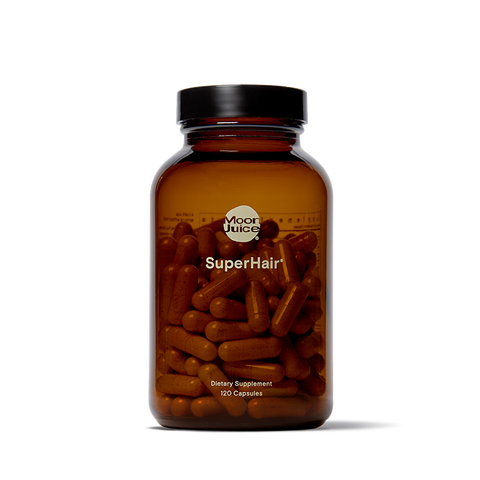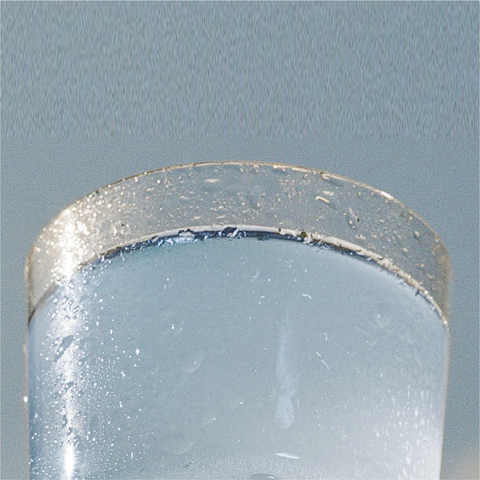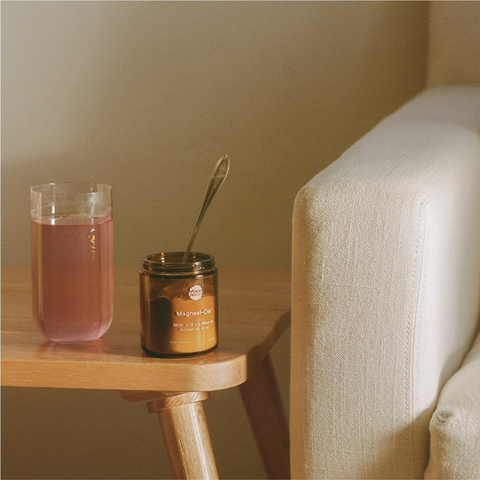A cocktail of the right vitamins in your daily diet can do everything from giving you brighter skin to making you more energetic. If you’ve struggled with thin and dull hair and have been looking for ways how to make your hair healthy, tweaking your vitamin intake might just be the answer.
Before taking vitamins to thicken your hair, you should take some time to examine why your hair isn’t doing so well. Maybe you’ve always had thin hair, or your hair recently suffered some damage due to a bad dye job or excessive heat.
An often underlooked cause of damaged hair is poor nutrition. Your diet heavily influences how well your body and mind function, and your hair isn’t excluded from this. If you have no clue what’s causing your hair to thin and weaken, taking hair-thickening vitamins is a great place to start.
If you’re experiencing thin hair, you should know that several factors beyond your control could also contribute to this. Genetics, certain medications, hormones, and stress could all affect how thick and healthy your hair is.
The following vitamins have been scientifically proven to support healthy hair growth. Here’s how they work:
Vitamin C
Vitamin C is an essential nutrient. It plays a crucial role in helping your body develop and repair its tissues. Vitamin C deficiency can cause several health problems and complications that can weaken your immune system. Vitamin C supplements are pretty widespread and available, especially during the flu season. They help balance the immune system and can help you quickly recover from a case of sniffles.
An added advantage of Vitamin C is that it’s an excellent antioxidant. Antioxidants help to protect you from the oxidative stress caused by free radicals (the unstable molecules created by stress, toxins, alcohol, sugar, and lack of sleep, that can damage your cells).
Another benefit of Vitamin C is that it aids the absorption of Iron into your body. Iron is a mineral that’s essential for a healthy immune system, energy, and hair health. Vitamin C also increases blood circulation to all parts of your body, including your scalp. The increased blood flow to your scalp can help stimulate hair follicles for healthier hair growth.
In addition to a high quality supplement, a natural way to get Vitamin C is by eating foods rich in the nutrient - oranges, strawberries, leafy green vegetables, and bell peppers.
Vitamin D
Vitamin D in your diet is essential for healthy bones, teeth, and muscles. Research shows that Vitamin D deficiency has been linked to hair loss patterns in women. In a 2021 review, scientists found that low levels of Vitamin D3 could be connected with hair loss in women and men.
The great thing is that you can get some of the Vitamin D you need from the sun. Spending time in the sun, whether it’s a short walk or sitting outside to drink your morning coffee, can help you get some Vitamin D in. But basking in the sun daily isn’t always enough to supply your body with all the Vitamin D it needs.
Eating Vitamin D-rich foods like shiitake mushrooms and nori is a great way to up your intake as well. Eggs, tuna fish, mushrooms, sardines, and salmon are also great sources of Vitamin D. If you’re worried about your Vitamin D levels, you might also want to consider taking a dietary supplement. It’s good to take Vitamin D supplements alongside meals that are high in healthy fats as fats aid the efficient absorption of Vitamin D by your body.
B Vitamins
A whole host of B Vitamins are vital to supporting healthy hair growth. The most common B Vitamin you might already be familiar with is Biotin—also known as Vitamin B7. If you’ve been looking into growth vitamins to thicken your hair, you’re likely familiar with Biotin at this point. It’s an essential growth ingredient often added to supplements that promote healthy hair and nails. Biotin supplements have been proven to help with hair loss in people with deficiency.
There are many types of B vitamins, but the only other one that’s linked to healthy hair growth is Vitamin B12 (also known as Cobalamin). If your body isn’t getting enough Vitamin B12, this could cause hair loss, making your hair look and feel thin. This is where B Vitamin supplements come in—they can help with hair loss and thickness. Food is also a great source, like avocados, dark and leafy vegetables, and beans.
Vitamin E
We don’t often associate Vitamin E with hair health, but research shows a link between Vitamin E deficiency and the development of alopecia. Alopecia is a condition that causes chronic hair loss. It can affect the hair growing out of all parts of your body, especially the hair growing out of your scalp. Studies on women with alopecia show that a large percentage of them had low levels of Vitamin E in their blood.
In a 2010 study involving participants with alopecia, researchers found that Vitamin E supplements caused a 34.5% increase in hair growth over eight months. The participants were divided into two groups, and one group was given a placebo. Researchers noticed only a 0.1% increase in hair growth in the people in that group.
Like Vitamin C, Vitamin E is also an excellent antioxidant that can help protect your body and hair from oxidative stress. Oxidative stress occurs when free radicals overrun antioxidants in the body. Spinach, almonds, and pumpkin are all high in Vitamin E, so including them in your diet can help you meet your daily requirements.
Vitamin A
Vitamin A is also known as Retinol, which you might already be familiar with as part of your skincare routine. Retinol is typically used to help improve the appearance of fine lines and wrinkles on your skin, but research shows that it can also make your hair healthier and appear thicker by stimulating your scalp to produce more sebum. Sebum is a natural lubricant produced by your scalp—it helps keep your scalp moisturized and prevents hair from breaking, keeping it thick and healthy.
Sweet potatoes and kale are both rich sources of Vitamin A. You can also take Vitamin A supplements to take advantage of its benefits. It’s crucial to ensure you are not taking too much vitamin A, as research shows that taking too much vitamin A can cause many complications, including hair loss.
Other nutrients essential for hair health
When looking for solutions for how to make your hair grow fast, it’s important to remember vitamins aren’t the only nutrients beneficial for your hair health. Other nutrients to include in your diet to support healthy hair growth include:
-
Omega-3 Fatty Acids:
Omega-3 Fatty Acids are essential for maintaining healthy cell health. Healthy cell health is important for a healthy mind and body, and they’ve been shown to make your hair and scalp healthier, aka thicker and more lustrous. In a 2015 study on the effects of nutritional supplements on hair loss in women, researchers found that taking Omega-3 supplements for six months was effective in significantly improving hair thickness. About 90% of the participants also noticed an improvement in less hair loss.
-

Collagen:
Collagen is a significant component of your skin, bones, muscles, and cartilage. It’s touted for its anti-aging properties, but it can also help you maintain healthy hair. Collagen contains amino acids which can help stimulate the production of Keratin, an essential protein for your hair’s growth. Collagen Protect® is a vegan collagen supplement that helps protect and preserve your body’s natural collagen production.
-
Iron:
Iron deficiency causes a condition called anemia. Symptoms of this condition include fatigue, pale skin, and headaches. Anemia can also lead to hair loss, which begins with your hair thinning and weakening before falling out. If you eat a plant-based diet or have a very heavy menstrual flow, it’s possible for your Iron levels to easily fall below what’s considered to be the normal range. However, if you are not iron deficient, you might not need supplements. You can get the Iron you need from a healthy diet full of lentils, spinach, and peas. It’s best to speak to your doctor or healthcare provider before taking an Iron supplement.
-
Zinc:
We often think of Zinc as something important for the immune system, but like with many micronutrients, Zinc can also affect your hair health, since deficiency can lead to alopecia. This is where supplementation is essential; you can also incorporate Zinc-rich foods into your diet, like chickpeas, lentils, and beans.
-
Protein:
As you know, the three essentials of any balanced diet are protein, carbohydrates, and fats. Proteins are essential for many processes in your body, including hair growth. A large percentage of your hair comprises a protein called Keratin - a naturally occurring protein that can be found in your hair and can be supplemented to boost production.
The bottom line
If your hair isn’t feeling thick and healthy these days, don’t worry, there’s a lot you can do about it. Since many vitamin deficiencies can lead to weaker and thinner hair, you should start by ensuring your diet is balanced and consider taking a multivitamin that combines a number of the vitamins above for healthier, thicker hair.
Your hair is typically the last part of your body to get nutrients from food, which is why taking vitamins for healthy hair is always a great idea. Taking hair thickening vitamins might not cause you to grow hair faster, but they can help your hair grow healthier and stronger. Strong, healthy hair won’t break or have split ends, making it look thick and lustrous.
When taking vitamins for fuller hair, be careful not to take more than your recommended daily allowance. Like everything, moderation is key. Taking an excess of specific vitamins could be harmful and even inadvertently lead to hair loss and thinner hair. You should know that your hair won’t do a complete turnaround once you start taking the necessary vitamins. If you are dealing with damaged or thinning hair, give it some time to renew itself. SuperHair® is our multivitamin plus hair magic. It contains a comprehensive vegan multivitamin plus adaptogens, follicle protectors, and micronutrients to help promote healthier, thicker, stronger hair.















